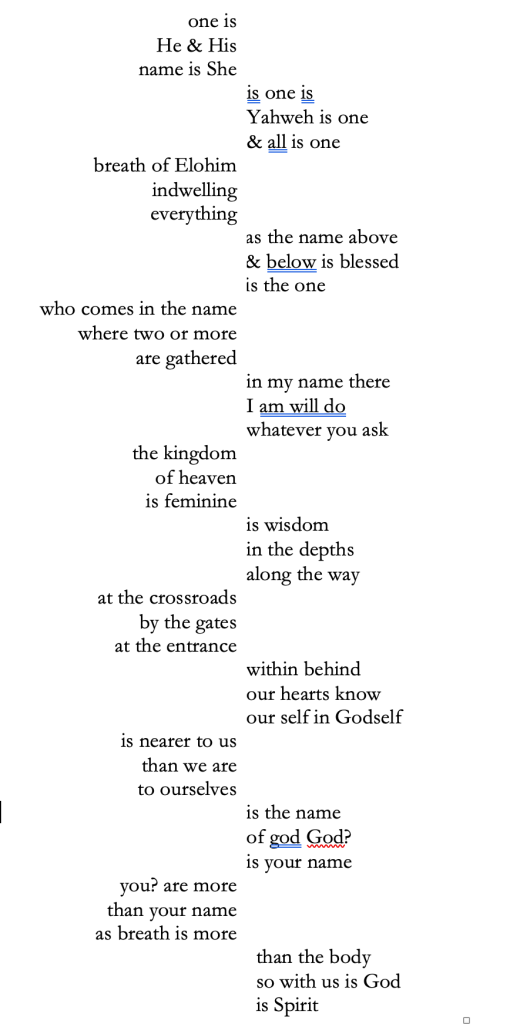Siddhattha Rewrites “O Store Gud”
Let us not worship sadness for the aim of great art;
I say, let us worship art, for the sake of great sadness.
Bow your head and pray, without the content of your words.
Pray with your knees, pray with your slumped shoulders,
pray with your chin set, in the basket of your clavicle.
A buddha might sit
in a blade of grass, in a bowl of water,
along a fly’s hum, on a weathered stone
but no buddha has ever nor will ever be housed in your form.
There is no enlightenment for you, for are you not
unsure?
We may yearn for what we’ve forgotten.
Never was there safety or simplicity within the womb you might long for.
How many ways you could have died, how many sufferings you did endure.
My god is the God of General Sadness.
No god requires you to believe, for holy places be dark places.
No gospel was ever meant to be written down,
spoken aloud, agonized over,
kept, cradled dearly.
So draw the face of your god.
Paint the trappings of the next, the nothing,
the end, the beginning you have never known.
You have been given no soul that is whole. Rather, you are building it.
I say, you must labor, you must pain over it.
When you ascend, or sink, or dissolve, or join,
will you be a being? Will you be whole?
När brister själen (When the soul breaks)
ut i lofsångsljud, (and the hymns sound,)
let us be as great art.
Let us in finality be hung on the walls.
Ourselves, at last, surrendering.
Renwick Berchild is half literary critic, half poet. She is lead editor of Green Lion Journal and writes at Nothing in Particular Book Review. Her poems have appeared in Porridge Magazine, AIOTB, Headline Press, Whimperbang, Free Verse Revolution, Vita Brevis, Streetcake, and other e-zines, anthologies, and journals. She was born and raised on the angry shores of Lake Superior, and now lives in a micro-apartment in Seattle, WA. Find more of her work at www.renwickberchild.com


